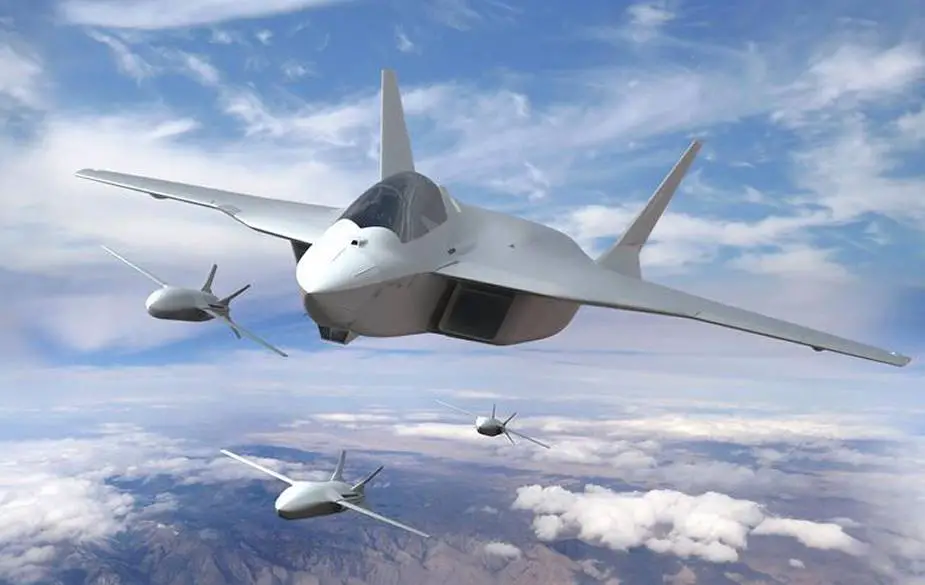Breaking news
Belgian Defense launches task force for Next Generation Combat Aircraft Technologies.
In the coming weeks, the Belgian Royal Higher Institute for Defense(IRSD) will bring together important players from the Belgian industry within the framework of the “Next Generation Combat Aircraft Technologies” working group. As foreseen in the “Defence, Industry & Research Strategy” of the Minister of Defense Ludivine Dedonder, this working group will examine the possibilities for the Belgian industry to participate in projects for the development of new-generation combat aircraft. The objective is to be able to formulate an opinion during the month of June to the federal government on the industrial possibilities of our country in this context.
Follow Air Recognition on Google News at this link
 NGF development will see Dassault take a lead role (Picture source: Airbus Defence & Space)
NGF development will see Dassault take a lead role (Picture source: Airbus Defence & Space)
The development of the fighter aircraft of the future is a long-term, complex and high-tech process, which offers many opportunities for Belgian industrial players. In order to fully exploit the potential of the Belgian industry, the actors of the Belgian industry will be brought together in the coming weeks within the "Next Generation Combat Aircraft Technologies" (NGCAT) working group, accompanied by the Royal Higher Institute of Defense.
The intention is for Belgian industry stakeholders to discuss how they can contribute to the development of the fighter aircraft of the future, in view of potential future investment programs, orders and economic returns for the future. Belgian industry. Due to the great diversity of topics – and therefore also of opportunities – the working group is divided into different subgroups. In this way, more companies – more specialized in certain areas – can join the table. These companies must have relevant capacity and experience in engineering (aeronautics and space), production or service support and will be subject to a security check before being admitted to the working groups. The five subgroups that will be established are:
• Aero structures and associated functions
• Avionics, connectivity and embedded sensor systems
• Propulsion and accessories
• System of systems interconsistency
• Disruptive Enabling Technologies
Cooperation with players from the Belgian defense and security industry in such working groups with a view to participating in development programs was provided for in the "Defence, Industry & Research Strategy" (DIRS) of Defense Minister Ludivine Dedonder. With this DIRS, approved by the federal government on September 16, 2022, and presented to the business world on October 4, 2022, Defense plans no less than 1.8 billion euros by 2030 to collaborate with Belgian industry and d other possible partners in the field of research and development of new technologies and dual capabilities.
The intention is that the NGCAT working group will be able to formulate an opinion to the Federal Council of Ministers during the month of June, in order to allow the whole of the Federal Government to decide in which way the Belgian industry concerned can be guided and supported in the field of “Next Generation Combat Aircraft Technologies”. Companies interested in one or more of the working groups can visit NGCAT – Ad-hoc Working Group – IRSD-KHID-RHID (defence-institute.be) for more information and to register.
Minister of Defense Ludivine Dedonder: “By involving Belgian industrial players and research and development centers in such projects from the outset, we are once again placing our Belgian industry at the center of the European defense and security industry. This is the heart of the DIRS, and also of this working group: to examine and study the possibilities and new developments in collaboration with the Belgian industry. Our country has a lot of knowledge and expertise in-house and thus we ensure that this knowledge stays in our country, that there is a greater chance of future investments and orders from our Belgian high-tech companies and thus ensure the future of our companies. This is not only important for the companies themselves, but also for the strategic autonomy of our country and Europe in the field of security and defence. The war in Ukraine has shown, among other things, that our country and Europe must focus more than ever on greater strategic autonomy and a more robust defense and security industry. We are fully committed to this with the DIRS and this working group.



















